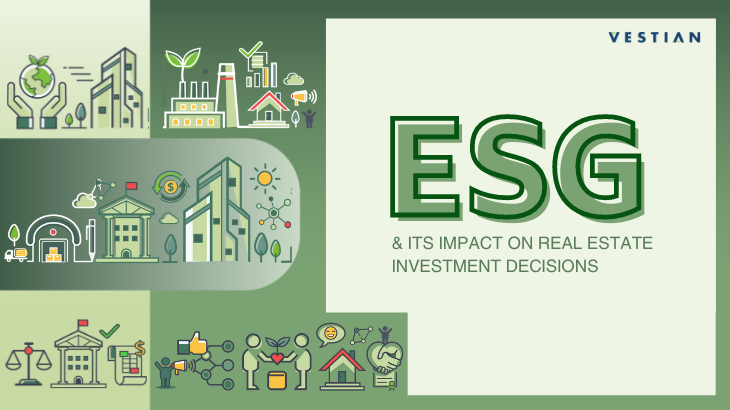ESG factors have assumed much significance in the real estate sector in the recent years, becoming an integral part of organisation strategies as they benefit the stakeholders not only from a financial returns perspective but also from an environmental sustainability standpoint. The deliberations that began with sustainability were propelled furthermore by the pandemic to include ESG accountability in the industry.
Green buildings garnering investor interest
With ESG coming into picture, the emphasis on sustainability has driven up considerable investment in green buildings and clean energy infrastructure. When compared with conventional structures, buildings with stronger environmental credentials that depict ESG compliance generate higher rents, fetch higher sale price, increase retention rates, and also demonstrate lower rates of obsolescence. These enhance the valuation of green buildings, leading them to be considered as secure credit assets and credible collaterals. Such projects relay improved satisfaction in occupiers, thus providing opportunity for higher lease renewal rates.
Not surprisingly, real estate projects with green certification such as LEED, or WELL certification, et al, are increasingly being preferred by stakeholders with a large number of investors integrating ESG criteria into their investment strategies. As a result, most international mature markets today are witnessing certified green projects charging a higher rental than non-certified ones – such buildings thus making for more attractive investment propositions. Investors are even being led to consider retrofitting existing properties for steady economic and environmental performance in time.
Building up on trust
Organisations are also looking at a broader view of their corporate philosophy and decisions, taking into consideration the social impact of these values. They are acknowledging the fact that the industry holds accountability of gaining investors’ trust by establishing the well-being of occupants and the surrounding communities. Additionally, the trust earned by the creation of increased transparency in its operational aspects by way of ESG compliance helps stakeholders in getting approvals and licenses with ease, thereby enabling their expansion in existing markets and entry into new ones unconstrained.
ESG providing an edge
Investors driven by a need to adhere to regulatory and environmental protection requirements have been finding it gainful to continue including ESG metrics in their strategies. They have realised that incorporating ESG considerations into each phase of the property lifecycle essentially helps preserve future asset value and improve brand image. Financial institutions, too, are paying increased attention to developers who have a clearer ESG structure in place.
The underlying opportunity
Thus it is no wonder that ESG considerations, today, are getting incorporated into developers’ objectives too and turning into a key factor in decision making. The responsibility of the developers to conform with ESG parameters has presently widened to include not only investors, financial institutions and concerned regulatory authorities but also occupiers who expect sustainable initiatives that enhance energy efficiency, water usage and wellness. This has become pertinent given the commitment of a large number of companies towards achieving net zero goals.
On this front, India has huge development potential and holds vast opportunity to come up with new real estate projects that uphold ESG values, unlike developed nations that largely require retrofitting or refurbishment of the existing structures to become ESG compliant. Thus, with requisite policies in place as well as able support from the government, as evidenced by its focus on sustainability in the Union budget 2022, India could well be on its way towards creating a sustainable built environment and achieving its net zero commitments.
